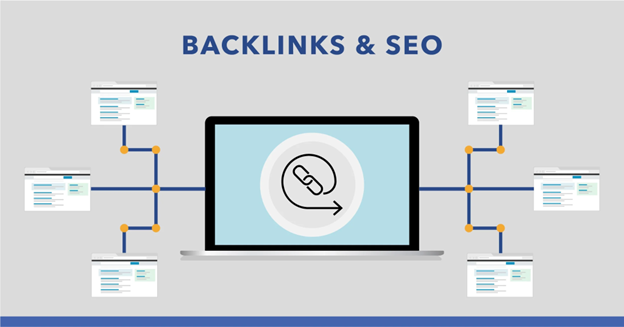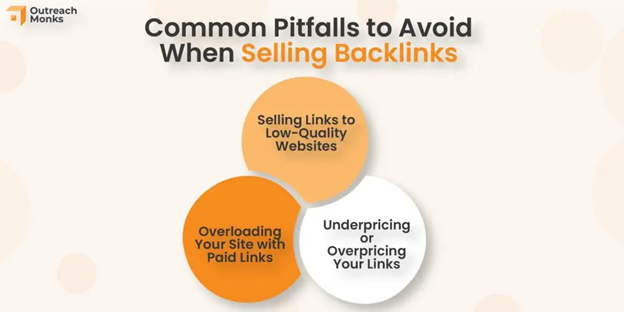SHARE

In the vast and ever-evolving world of search engine optimisation(SEO), one concept that consistently remains at the forefront is the importance of backlinks. These small but mighty connections between websites can significantly impact a website’s visibility and authority. However, understanding the true impact of backlinks on domain authority requires a comprehensive study that delves into the intricacies of this fascinating topic.
Understanding the Concept of Backlinks
Before we delve into the correlation between backlinks and domain authority, let’s take a moment to explore the concept of backlinks itself. Quite simply, backlinks are links from external websites that direct users to your website. They serve as a vote of confidence from another site, indicating that your content is valuable and trustworthy. Not all backlinks are created equal. The quality and relevance of the linking website greatly influence the impact a backlink has on your domain authority. Thus, it becomes crucial to understand the role of backlinks in SEO and how they can ultimately shape your website’s visibility and reputation.
Regarding backlinks, it’s important to note that they have been a fundamental aspect of search engine optimisation (SEO) for many years. In the early days of the internet, search engines primarily relied on the number of backlinks a website had to determine its relevance and authority. The more backlinks a website had, the higher it would rank in search engine results. As search engines evolved and became more sophisticated, the focus shifted from quantity to quality. Search engines began prioritising backlinks from authoritative and relevant websites rather than simply counting the number of backlinks. This change was necessary to prevent websites from manipulating search engine rankings by acquiring low-quality or spammy backlinks.
So, what makes a backlink high-quality and relevant? Firstly, a high-quality backlink comes from a website considered authoritative and trustworthy. This could be a well-established and reputable website in your industry or a popular news outlet with a strong online presence. When such a website links to your content, it signals to search engines that your website is trustworthy and valuable. Secondly, relevance plays a crucial role in determining the quality of a backlink. Ideally, the linking website should be in the same or a related niche as your website. For example, if you run a fitness blog, a health and wellness website backlink would be more valuable than a backlink from a fashion blog. This is because search engines consider relevant backlinks as a sign that your website provides valuable information to users in a specific field.
Moreover, the anchor text used in the backlink also contributes to its quality. Anchor text is the clickable text that appears in a hyperlink. It is important to use descriptive and relevant anchor text that accurately represents the linked page’s content. For example, if you are linking to a blog post about “healthy eating tips,” using anchor text like “healthy eating tips” or “nutrition advice” would be more effective than using generic text like “click here.”Building a strong backlink profile requires a strategic approach. It involves contacting relevant websites and building relationships with webmasters and bloggers in your industry. This can be done through guest blogging, where you contribute valuable content to other websites in exchange for a backlink. Creating high-quality content that naturally attracts backlinks is also a powerful strategy.
It’s worth noting that while backlinks are important for SEO, they are not the only factor that search engines consider when ranking websites. Website usability, mobile-friendliness, page load speed, and content relevance also significantly determine search engine rankings. Backlinks are an essential aspect of SEO that can greatly impact your website’s visibility and reputation. By understanding the concept of backlinks and focusing on acquiring high-quality and relevant backlinks, you can improve your website’s domain authority and ultimately enhance its search engine rankings.
Looking for a trusted SEO agency? 2Stallions combines data-driven strategies with personalised service to help your business rank higher and grow online. Schedule a free consulation with us now.
The Correlation Between Backlinks and Domain Authority
Domain authority is a metric developed by Moz that quantifies a website’s overall strength and credibility. It considers various factors, including the number and quality of backlinks pointing to a site. Therefore, it is no surprise that building a strong portfolio of high-quality backlinks is key to improving domain authority.
Defining Domain Authority
Let’s start by understanding what domain authority truly means. It measures the likelihood of a website ranking higher in search engine results pages (SERPs). The higher the domain authority, the greater the chances of your website appearing on the first page of search results. Domain authority is calculated on a scale of 1 to 100, with higher scores indicating a stronger website. By comprehending this metric, we can better appreciate the impact of backlinks on domain authority.
How Backlinks Influence Domain Authority
The relationship between backlinks and domain authority is symbiotic. When reputable websites link to your content, search engines perceive your website as more valuable and authoritative. This, in turn, contributes to an increase in domain authority. It’s important to note that not all backlinks hold the same weight. Quality matters just as much, if not more, than quantity. High-authority domains linking to your site significantly impact your domain authority more than numerous low-quality backlinks. Hence, acquiring quality backlinks becomes pivotal in enhancing your website’s credibility.
Let’s delve deeper into backlinks and how they can impact your website’s domain authority. Backlinks, or inbound links, are links from external websites that direct users to your site. They vote for confidence from other websites, indicating that your content is valuable and worth referencing. When search engines crawl the web, they consider backlinks a signal of trust and authority. The more high-quality backlinks your website has, the more search engines perceive it as a reliable source of information. This, in turn, can positively affect your domain authority.
Building a strong portfolio of backlinks requires a strategic approach. It’s not just about accumulating as many links as possible but rather focusing on obtaining links from reputable and relevant sources. Search engines value links from authoritative websites in the same industry or niche, as they indicate a strong connection and relevance. One effective way to acquire quality backlinks is through content creation. Producing high-quality, informative, and engaging content increases the chances of other websites linking to your content. This can be achieved through guest blogging, where you contribute articles to other websites for a backlink to your site.
Another approach is actively engaging with your industry’s community and building relationships with influencers and thought leaders. By establishing yourself as an expert in your field and providing valuable insights, you increase the likelihood of others linking to your website. Backlinks should be earned naturally and organically. Search engines have become increasingly sophisticated in detecting manipulative link-building practices. Engaging in spammy or black-hat techniques can result in penalties and decreased domain authority.
The correlation between backlinks and domain authority is undeniable. Backlinks play a crucial role in determining the credibility and strength of a website. By acquiring high-quality backlinks from reputable sources, you can significantly improve your website’s domain authority and increase your chances of ranking higher in search engine results.
The Process of Acquiring Quality Backlinks
Now that we understand the significance of quality backlinks let’s delve into the acquisition strategies.
Identifying High-Authority Domains
One effective way to garner quality backlinks is by identifying and reaching out to high-authority domains within your niche. Conduct thorough research to identify websites with a strong online presence relevant to your industry. You can significantly enhance your domain authority by securing backlinks from these domains.
Strategies for Effective Backlink Acquisition
There are several strategies to acquire quality backlinks that can positively impact your domain authority. Guest blogging, creating valuable and shareable content, and nurturing relationships with industry influencers are just a few examples among a sea of possibilities. Adopting a well-rounded approach to backlink acquisition will ensure a diverse and robust backlink profile for your website.
The Potential Pitfalls of Backlinks
While backlinks can propel your website’s authority to new heights, it’s essential to be aware of the potential pitfalls that come along with them.
The Risk of Low-Quality Backlinks
Not all backlinks are created equal, and low-quality backlinks can harm your website’s ranking and credibility. Search engines, such as Google, have sophisticated algorithms to detect and penalise websites with an excessive number of low-quality backlinks. Therefore, it’s imperative to prioritise quality over quantity when it comes to building your backlink profile.
Google Penalties and How To Avoid Them
Google penalties can seriously impact your website’s visibility and authority. To avoid these penalties, staying updated with Google’s guidelines and focusing on acquiring natural, high-quality backlinks is essential. Engaging in link schemes or purchasing backlinks can land you in hot water with search engines, so it’s best to steer clear of such activities.
Measuring the Impact of Backlinks on Domain Authority
Now that we comprehensively understand backlinks and their role in domain authority let’s explore how we can measure their impact.
Tools For Tracking Backlink Performance
Various tools are available that can assist in tracking the performance of your backlinks. These tools provide valuable insights into the number of backlinks, the quality of linking domains, and the overall impact on your domain authority. Leveraging these tools allows you to make data-driven decisions to optimise your backlink strategy.
Interpreting Backlink Data
It’s crucial to interpret the backlink data collected from tracking tools effectively. Identify patterns and correlations between backlink acquisition efforts and changes in domain authority. This will enable you to refine your approach and improve your website’s visibility and authority.
A Final Word
In conclusion, our comprehensive study on the impact of backlinks on domain authority highlights their crucial role in SEO. Backlinks serve as a vote of confidence from other websites, influencing search engines to view your site as valuable and authoritative. By prioritising quality backlinks and avoiding potential pitfalls, you can effectively boost your domain authority and improve your website’s ranking in search engine results. Remember, tracking the impact through various tools and analyzing the data is key to continuously optimising your backlink strategy. So, go forth, build quality connections, and watch your website’s authority soar!
Frequently Asked Questions About the Impact of Backlinks
What Are Backlinks?
Backlinks (also known as “inbound links”, “incoming links” or “one way links”) are links from one website to a page on another website through an anchor text. Google and other major search engines consider backlinks “votes” for a specific page, thus indicating relevance, quality, and authority to the web page. Pages with many relevant backlinks tend to have high organic searsearch engine rankings.
How Do Backlinks Work in SEO?
Do Backlinks Affect Domain Authority?
Yes, backlinks can also boost your domain authority. While domain authority isn’t a Google ranking factor, many SEO tools use this metric to help identify ways to improve your strategy by comparing you to the competition.
What Are the 3 Main Features of a Quality Backlink?
What Backlinks Are Best for SEO?
- Editorial Backlinks.
- Backlinks From Guest Blogging.
- Backlinks in Business Profiles.
- Backlinks from Webinars.
- Free-Tool Backlinks.
- Acknowledgment Backlinks.
- Guest Post Bio Links.
- Badge Backlinks.

















